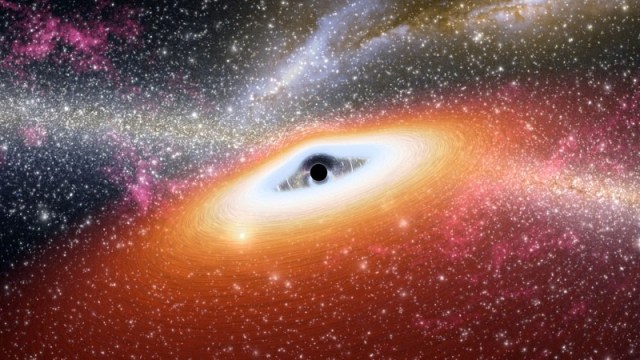Your cellphone won’t give you brain cancer, Australian researchers say

Photo credit: Steve Eason / Hulton Archive / Getty Images
As we’ve told you before, your cellphone will not give you brain cancer. This time, our proof comes from the largest study conducted on the subject.
A group of top cancer researchers out of the University of Sydney pored over 29-years worth of data to come to that conclusion. They pulled their data from the Australian National Cancer Registry because all cancer diagnoses in Australia have to be legally registered.
The team compared “age and gender-specific incidence rates of 19,858 male and 14,222 females diagnosed with brain cancer between 1982 and 2012, and mobile phone usage data from 1987 to 2012,” writes lead researcher Simon Chapman in the study, published by The International Journal of Cancer Epidemiology.
The cellphone data begins in 1987 because that’s when they were first widely available in Australia.
After factoring in age-specific rates of cancer diagnoses, the immense increase of cellphone use, and a 10-year timeframe to develop a diagnosis, the researchers came to a very reassuring conclusion: “We found no increase in brain cancer incidence compatible with the steep increase in mobile phone use.”
Hooray! We can all keep using our cellphones without fear of developing brain tumors. The results weren’t all great, though: “Modeled expected incidence rates were higher in all age groups in comparison to what was observed,” with a predicted 2038 expected diagnoses of brain cancer for all age groups. However, the rise of brain cancer diagnoses will likely not be caused by cellphones. “Brain cancer incidence between 1982 and 2013 has not increased in any age group except those aged 70–84… [but] the increase began in 1982 before mobile phones were introduced.” Chapman believes the increase of diagnoses comes from better overall diagnostics, as he explains for The Conversation:
Computed tomography (CT), magnetic resonance imaging (MRI) and related techniques, introduced in Australia in the late 1970s, are able to discern brain tumors which could have otherwise remained undiagnosed without this equipment. It has long been recognized that brain tumors mimic several seemingly unrelated symptoms in the elderly including stroke and dementia, and so it is likely that their diagnosis had been previously overlooked.
Chapman gave further reassurance to Medscape Medical News, saying that “age [is] the biggest predictor of most cancers,” and “the radiation from cellphones is nonionizing, so it is highly unlikely to cause cancer.”
Other interesting facts from the study include that the rate of brain cancer diagnoses is not equal among the genders. Men between the ages of 20-84 have had more diagnoses of brain cancers in the last 30 years. Women within that same age-range haven’t seen an increase in diagnoses. And all of these findings correspond with other studies from New Zealand, the Nordic countries, the United Kingdom, and the United States.
Reassuring as these results are, they’re not as comprehensive as other researchers would like.
“The study by Dr. Chapman and colleagues does not give incidence data for high-grade glioma located in the temporal or frontal lobe, so I am afraid that their study is not very informative,” Dr. Lennart Hardell of University Hospital in Örebro, Sweden pointed out to Medscape. He continued:
We have consistently found an increased risk for high-grade glioma, including the most malignant type, glioblastoma multiforme grade IV, and use of wireless phones. Lumping together all types of brain tumors, regardless of location in the brain, hampers any conclusions on incidence trends.
Dr. Devra Davis takes issue with the fact that 10 years is simply not enough time to allow cancer diagnoses to manifest. Many other neurologists disagree with her, including prominent Sydney neuroscientist Dr. Charlie Teo:
If you look at the science on mobile phones and the link with brain cancer, it is quite compelling … we know that radiation causes cancer, but it takes about 10 years for it to develop, so we know that EMR electromagnetic radiation is going to take at least 10 years to create brain tumors and possibly longer, 15, 20 years.
So don’t worry about your cellphone giving you brain cancer. As far as science can tell, it won’t. If you’re still concerned, here’s a one-sheet from the National Institutes of Health breaking down the genetic makeup of cancer.





